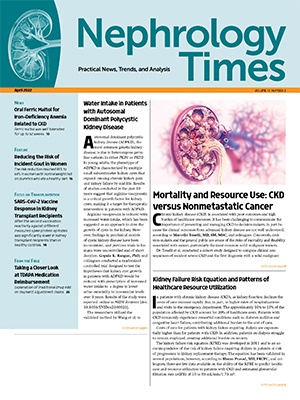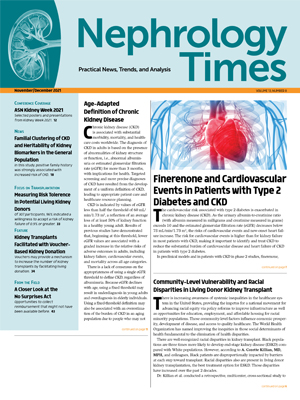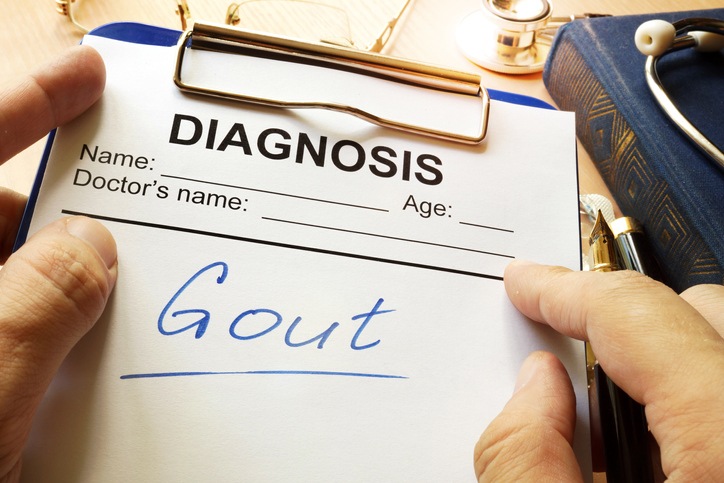The mRNA SARS-CoV-2 vaccines are highly effective in the general population and recipients form an antibody to S1 subunit of the SARS-CoV-2 spike protein. Results of early studies among immunosuppressed adult recipients of solid organ transplants suggested a decreased antibody response. There are few data available on the serologic response in adolescent solid organ transplant recipients.
Clarkson Crane, MD, and Elizabeth G. Ingulli, MD, University of California San Diego, La Jolla, California, conducted an analysis of adolescent kidney transplant recipients at the center who received both doses of an mRNA SARS-CoV-2 vaccine. Results of the analysis were reported during a virtual poster session at ASN Kidney Week 2021 in a poster titled Antibody Response to SARS-CoV-2 mRNA Vaccines in Pediatric Kidney Transplant Recipients.
As part of routine clinical care, adolescent kidney transplant recipients who received both doses of an mRNA vaccine had the presence of SARS-CoV-2 spike protein antibodies evaluated 4 to 8 weeks following their second dose. Drs. Crane and Ingulli utilized the Abbott chemiluminescent microparticle immunoassay or Siemens Atellica IM SARS-CoV-2 IgG. Patients were characterized as vaccine responders or non-responders.
Of the 47 vaccine-eligible adolescent kidney transplant recipients in the program, 34 received both doses of an mRNA SARS-CoV-2 vaccine. Of those, 23 had spike antibody titers obtained. Median age was 21.5 years and all but one had received a transplant more than 3 years ago. Twenty-two of the 23 received Pfizer-BioNTech vaccine and one received Moderna.
Twelve patients (52%) had a positive spike antibody (responders). Of the 12, the immunosuppression of eight patients included mycophenolate (mean dose, 719 mg/m2/day), three were treated with azathioprine, and one was not taking an antimetabolite due to Epstein-Barr virus viremia. All non-responders were treated with mycophenolate (average dose, 755 mg/m2/day). Three patients had prior COVID-19 infection, and all had positive antibody response.
In summary, the authors said, “Our results suggest vaccine response in adolescent kidney transplant recipients is suboptimal and lower than in the general population. However, 52% response rate is similar to that previously described in adult solid organ transplant patients. While our study is limited by small sample size and lack of standardized timing for measuring antibodies, it provides further evidence of lower immunogenicity to SARS-CoV-2 vaccination in solid organ transplant. Those who did not respond tended to have a higher average dose of mycophenolate and this supports further study of alternative antimetabolite dosing strategies around the time of vaccination or the potential utility of a third vaccine dose in solid organ transplant patients. At our center, efforts to continue characterizing antibody response of pediatric kidney transplant recipients are ongoing and we anticipate additional data in the coming months as vaccine eligibility expands to younger patients.”
Source: Crane C and Ingulli EG. Antibody response to SARS-CoV-2 mRNA vaccines in pediatric kidney transplant recipients. Abstract of a poster presented at the American Society of Nephrology virtual Kidney Week 2021 (Abstract PO2094), November 2021.





 © 2025 Mashup Media, LLC, a Formedics Property. All Rights Reserved.
© 2025 Mashup Media, LLC, a Formedics Property. All Rights Reserved.